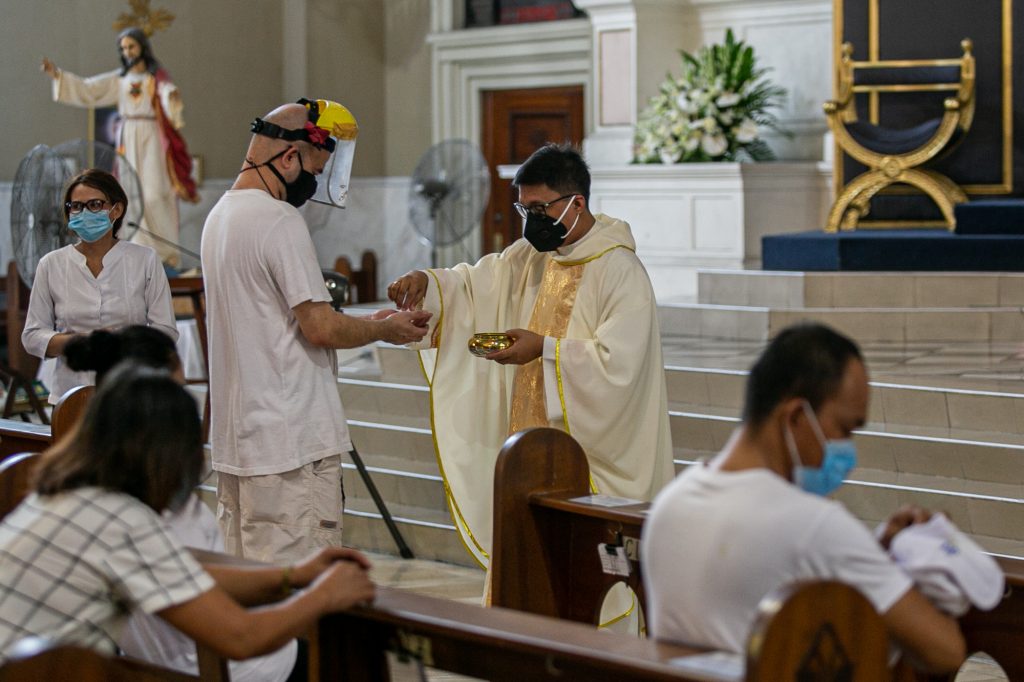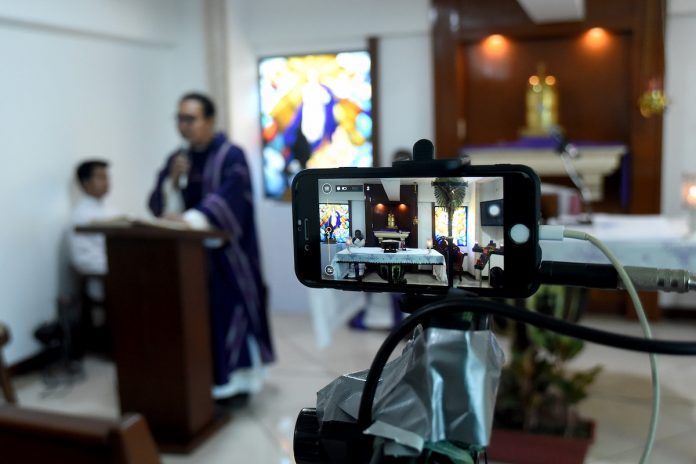In 2018, I attended a gathering of Church communicators. It was an attempt to discern on effective ways to evangelize in keeping with the “signs of the times.”
As the day comes to a close, one of the guests said: “At this point in time, the phrase ‘My dear people of God’ should no longer be in use.”
The participants understood it as an invitation to be more “practical” and “careful” when issuing statements that concerns the Church and the “people of God.”
I am deeply concerned with how Philippine Church communicators speak in public.
My professor in Fundamental Theology once told us in class: “We don’t change dogmas, it can never be done. What we change is the language used.”
Imagine talking to a seven-year-old child on the process of “transubstantiation” or the equality of the three persons of the Trinity the way our Nicene fathers debated in the Council of Nicea.
Can you imagine speaking French to a nine-year-old Filipino girl from the province? What’s the assurance that she can understand the message?
In my research on “digital shepherding” using an open-ended questionnaire, I conducted informal interviews among individuals who vary in age, status, and professions to supplement my academic requirements.
When asked if she sees the Church doing enough to reach out to people, Cherry, 22, a marketing professional said: “I don’t know, well I guess at the same time, there’s no proper way of communication.”
She never had the chance to see a lot of outreach programs being conducted by any Catholic institution or her parish.
When we came across the issue of donations for some charitable works, Cherry said: “In my experience in a parish near my place, every time, like at the end of the Mass, at the end of the week, on Sundays, they say like ‘The amount of money that we generated from all of the donations are to be used to fix the church.'”
“Is the goal to beautify the church? It is okay, but how much can you make a church look nice?” she asked.

When asked how should the Church reach out to people, Samuel, 61, said: “I’m not against the Church, I’m a Catholic but oftentimes, when we hear Mass, priests are becoming too political in giving out sermons.”
“You’re already inside the church and you hear such sermons driven by anger,” he said.
Samuel said it is already stressful and tiring to work five days a week, so he expects to be freed from “worldly affairs” inside the church during weekends.
“I should have just watched news on television instead of hearing Mass,” he said.
Is it not right for the clergy to speak about social issues? The Church must always have the prophetic voice to speak about the voiceless.
But the comments of people like Cherry and Samuel are disturbing. They too should be heard. “Ordinary people,” the lay, the baptized, should be heard.
“What man among you,” said Jesus, “if he has a hundred sheep and has lost one of them, does not leave the ninety-nine in the open pasture and go after the one which is lost until he finds it?”
This passage is a call for the Church to look for the lost, those who distanced themselves from the rest of the flock.
Pope John Paul II, in his encyclical Redemptoris Missio, said: “There is an intermediate situation, particularly in countries with ancient Christian roots … where entire groups of the baptized have lost a living sense of the faith, or even no longer consider themselves members of the Church, and live a life far removed from Christ and his Gospel.”
What has gone wrong?
I must admit that for the most part, many of us in the Church have forgotten to speak in human language, have become too “idealistic.”
Today’s generation needs to understand the teachings of the Church in their own language.
Even in the academic community, education professionals are looking for ground-breaking tools to adapt when speaking of Generation Z.
Educator Dr. Carmen Miranda said the young generation needs “real-life knowledge that can be related to their job area.”
The Philippine Church has to adapt. It has to change its tone, its way of speaking, without compromising the magisterium.
Lay faithful, especially the unchurched, are in need of guidance amid the challenges they face in the world. They need shepherds with the shepherd’s voice.
Church social communicators, evangelizers, should learn the language of the people.
Adrian Banguis-Tambuyat is a young communication practitioner specializing in online content strategy and broadcast journalism. His interests are focused on social justice, youth formation, communication theology and mass media evangelization.









